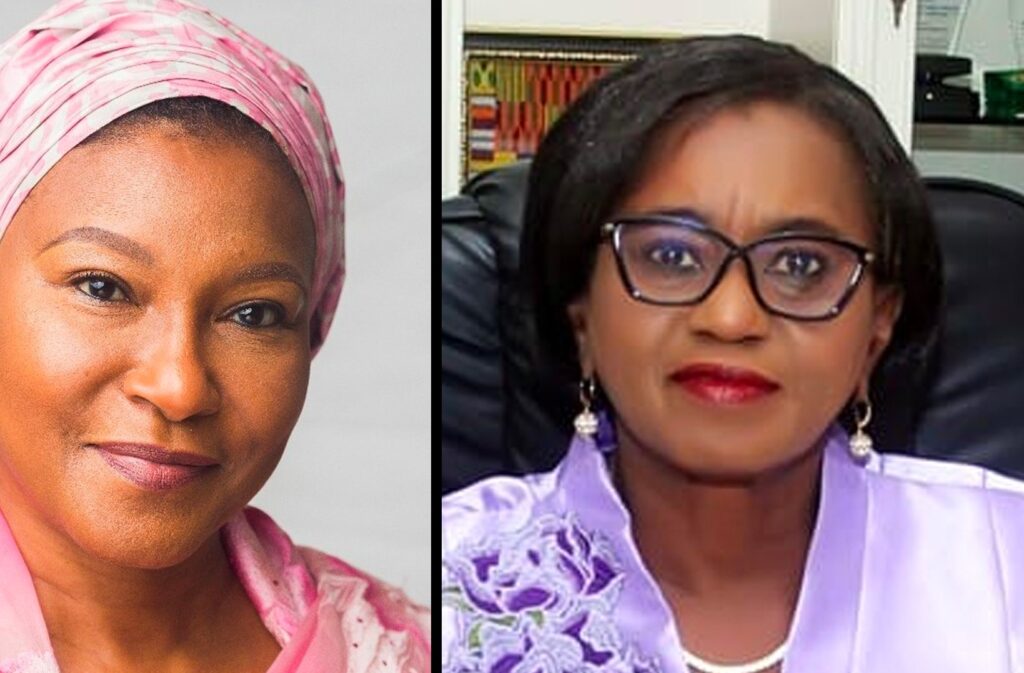As the world celebrates the 2023 International Women’s Day (IWD), it is important to take a look at women participation in politics. Again, like the gender constitution of the previous and current National Assembly (NASS), Nigeria’s 10th Senate and 10th House of Representatives, which will resume by June is male-dominated, raising concerns about the lip service paid to affirmative action as well as gender and equal opportunity in the West African country.
Characteristically, of the new crop of federal lawmakers elected during the just-concluded February 25 presidential and National Assembly polls, only 15 of the 423 legislative seats declared so far by the electoral body are women while 408 are men. In other words, women represent 3.5% while men has 96.5% of the 423 seats.
The elected legislators include 98 out of 109 Senate, and 325 out of 360 House of Representatives seats. Altogether, seven parties won in the Senate, while eight parties won House of Representatives seats. Whilst the Independent National Electoral Commission (INEC) had declared winners for 423 legislative seats, the electoral umpire indicated that supplementary elections would be conducted in 46 other constituencies.
Of the federal lawmakers elected so far, women got two seats in the red chamber, and 13 seats in the green chamber.
In terms of party representation for the 10th Assembly, INEC said APC won 57 Senate seats; the PDP, 29; LP, 6; SDP, 2; NNPP, 2; YPP, 1; and APGA, 1. For the lower chamber, the electoral chair said the APC has 162 seats; PDP, 102; LP, 34; NNPP, 18; APGA, 4; ADC, 2; SDP, 2; YPP, 1.
Two Female Senator-Elect Only
The deputy governor of Rivers State, Ipalibo Banigo, was elected the representative for Rivers West Senatorial District under the Peoples Democratic Party (PDP).
Kingibe Ireti was also elected the Senator for the Federal Capital Territory (FCT) under the Labour Party. She is the wife of Baba Gana Kingibe, a former secretary to the government of the federation (SGF),
13 Female Member-Elects for 10th Reps
- Orogbu Obiageli – LP, Awkwa North/Awka South Federal Constituency
- Nnabuife Chinwe Clara – YPP, Orumba North/ Orumba South Federal Constituency
- Gwacham Mauren Chinwe – APGA, Oyi/Ayamelum Federal Constituency
- Ebikake Marie Enenimiete – PDP, Brass/Nembe Federal Constituency
- Akume Regina – APC, Gboko/Tarka Federal Constituency
- Onuh Onyeche Blessing – APC, Otukpo/Ohimini Federal Constituency
- Zainab Gimba – APC, Bama/Ngala/Kala-Balge Federal Constituency
- Ibori-Suenu Erhiatake – PDP, Ethiope East/Ethiope West Federal Constituency
- Onuoha Miriam Odinaka – APC, Isiala Mbano, Okigwe, Onuimo Federal Constituency
- Beni Butmak Lar – PDP, Langtang North, Langtang South Federal Constituency
- Goodhead Boma – PDP, Akuku Toru, Asari Toru Federal Constituency
- Bukar Abba Ibrahim Khadijah Waziri – APC, Damaturu, Gujuba, Gulani, Tarmuwa Federal Constituency
- Fatima Talba – APC, Nangere Potiskum Federal Constituency
The theme for this year’s International Women’s Day is,’DigitALL: Innovation and technology for gender equality’. According to the United Nations, the theme is aligned with the priority theme for the upcoming 67th Session of the Commission on the Status of Women (CSW-67), “Innovation and technological change, and education in the digital age for achieving gender equality and the empowerment of all women and girls”.
Concerned about the disparity in of the male-female percentage in all spheres of governance and career, the National Human Rights Commission (NHRC) on Tuesday urged the National Assembly to consider and pass the Gender and Equal Opportunity Bill and other bills supporting affirmative action.
The Commission said the passage of the bills will reduce gender-based violations and legally equip women to challenge the inequalities confronting them including Sexual and Gender-Based Violence (SGBV) which has continued to rear its ugly head in the society.
Though a few women have been acting governors in Nigeria but none has been elected as governor in the last six general elections. With the governorship and state assemblies’ elections coming up on March 11, Nigerians expect a recordable number of wins by women. But can this election be a game changer?

